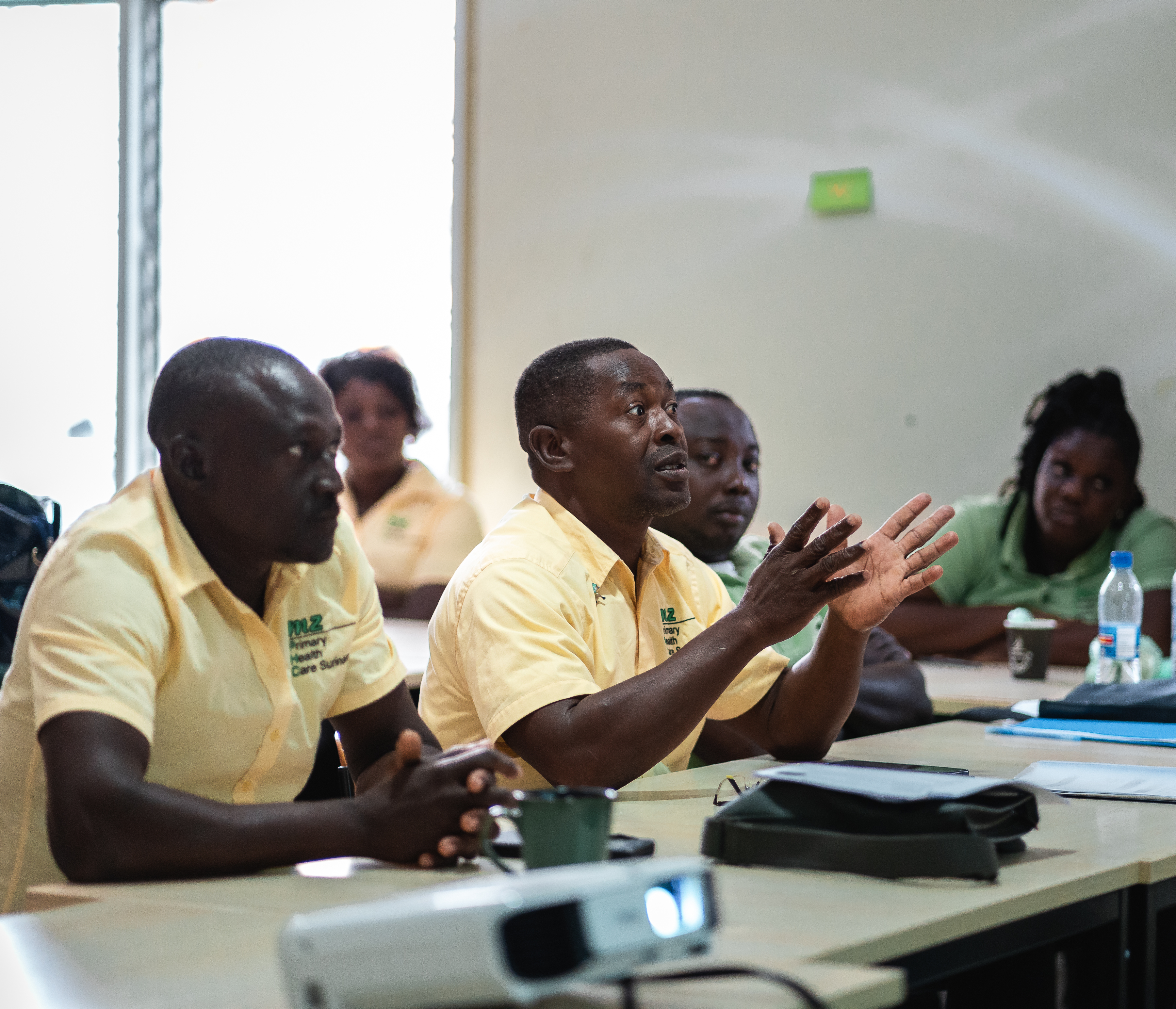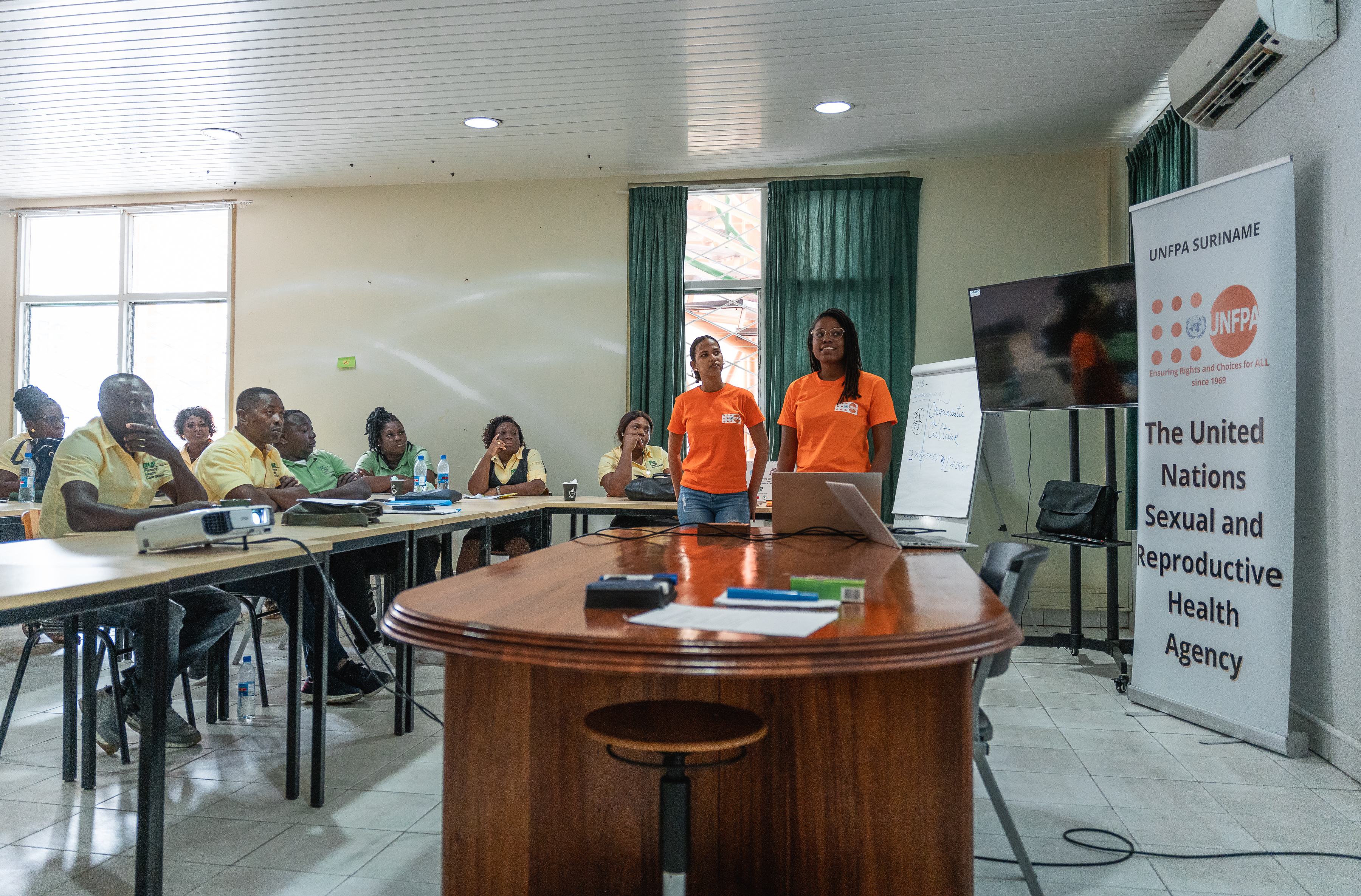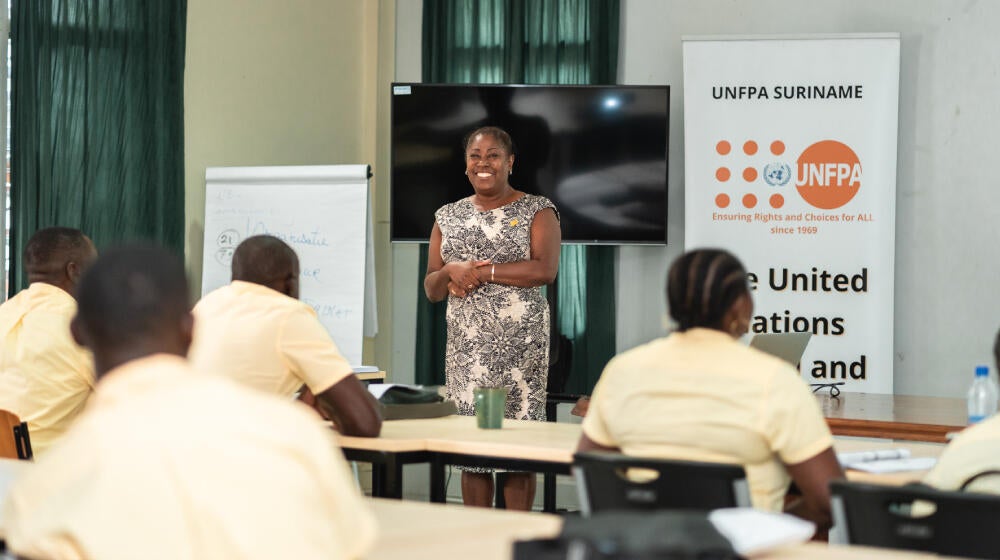UNFPA in partnership with UNDP, UNICEF, UN Women, and FAO works together with national government and civil society institutions for the development of integrated policy solutions to enable inclusion, build resilience, and improve livelihoods among Indigenous and Tribal Peoples (ITPs). This joint SDG project aims to address the multi-dimensional vulnerabilities of ITPs through its focus on improving access to essential services and employment.

The launch event for the United Nations Joint Programme (JP) Leaving No One Behind, Building Resilience, and Improving Livelihoods of Indigenous and Tribal Peoples (ITPs) in Suriname took place on April 1st, 2022. Through this project, UNFPA contributes to the reduction of young motherhood. Suriname has an adolescent fertility (AFR) rate of 64 births per 1,000 girls aged 15-19 slightly above the Caribbean average of 60.2*. However, this rate is disproportionately high in the hinterland districts with up to 210 births per 1,000 girls aged 15-19 among Indigenous and Tribal (Maroon) girls. This is particularly concerning because of the impact that early motherhood has on adolescent life chances.

UNFPA’s partnership with the Medical Mission aims to reduce young motherhood in selected ITP communities in Suriname by improving the availability of and access to quality sexual and reproductive health information and services for adolescents and by empowering adolescents to make informed decisions. The identified actions for the prevention of adolescent pregnancies are in line with the National Sexual and Reproductive Health and Rights Policy of Suriname (2020-2030) and the Gender Vision Policy Document (2021-2035). The first event under the joint project was conducted on August 23, was the training “identify and work with influencers and peer educators”. 35 health care assistants from the 5 service regions: Region East Suriname; Region Brokopondo; Region Upper Suriname; Region Middle Suriname and Region Upper Amerindians, participated. The LO and 2 members of the UNFPA Youth Advisory group to support the delivery. The strengthened capacity will serve to support the adolescent friendly services in the clinics as well as the corps of peer educators recently established in each service region. The next group of 40 health care assistants were provided with the same training on August 8.
* MICS, 2018. UNICEF, Ministry of Social Affairs, and ABS.


